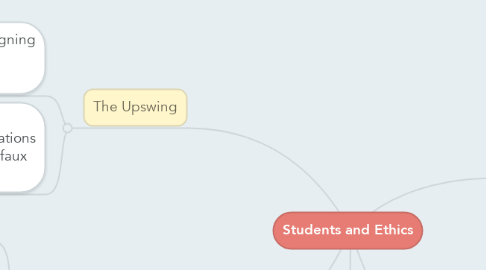Students and Ethics
by Michaela Baughman

1. The Upswing
1.1. With holding students responsible (i.e signing code of ethics) - its brings personal accountability to the situation.
1.2. With correct teachings, it makes information available safer and with correct APA and Citations it removes the fear or committing an ethical faux pas.
2. Why I picked my Four
2.1. I picked the online article from Prohaska because it covered the psychological aspect of ethics and the student.
2.2. Another source I chose was a student vs ethics journal from a student council perspective.
2.3. Also with the literiture provided by Kafai, it explores the depth of learning on the endless source of the internet and how learning styles can take place with it.
2.4. Lastly, I chose the excerpt from Rooke that covers the pillars of Internet research ethics, which I found very fitting judging that this is a research paper about ethics and the student!
3. My Citations
3.1. 1.) Prohaska, V. (2013, May 1). Encouraging students' ethical behavior. Retrieved January 30, 2015, from http://www.apa.org/ed/precollege/ptn/2013/05/ethical-behavior.aspx
3.2. 2.) Internet Ethics Anonymous. Leadership for Student Activities, NASC Edition 34.9 (May 2006): 4-6.
3.3. 3.) Kafai, Y. B. (2004). ICLS 2004 : Embracing Diversity in the Learning Sciences: Proceedings: June 22-26, 2004, University of California Los Angeles, Santa Monica, CA. Mahwah, NJ: Routledge.
3.4. 4.) Rooke, Barry. Journal of Academic Ethics 11.4 (Dec 2013): 265-268.
4. Major Ethical Issues
4.1. Cheating
4.2. Plagerism
4.3. Academic Honesty
5. How the ethical issues affect online learning environments.
5.1. Easier Access to sites that you can pay for someone else to do your work
5.2. Search Engines + Copy and Pasting someone else's work.
5.3. Relies on more in-depth detecting on the teacher's part to make sure their students are being honest.


